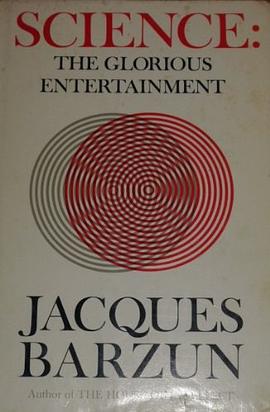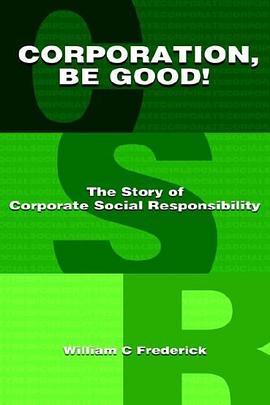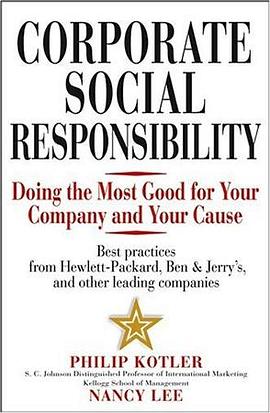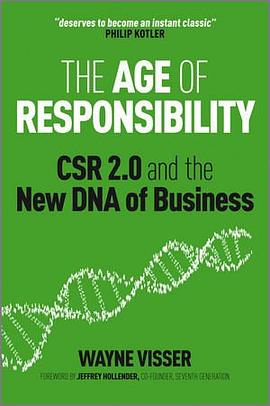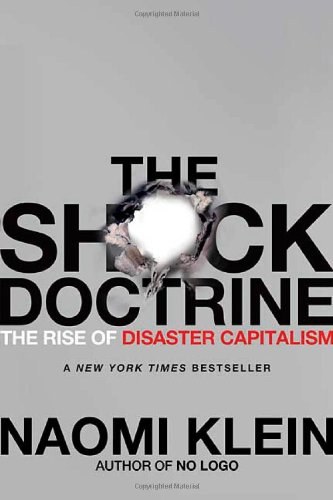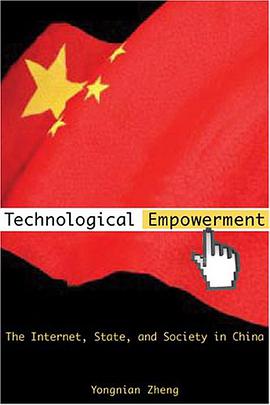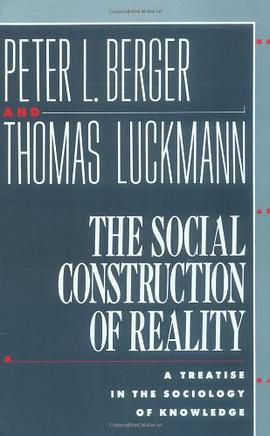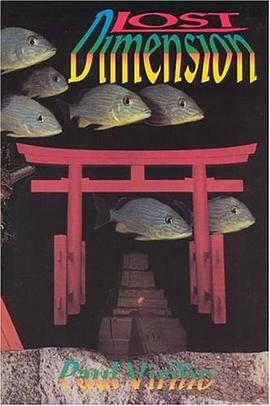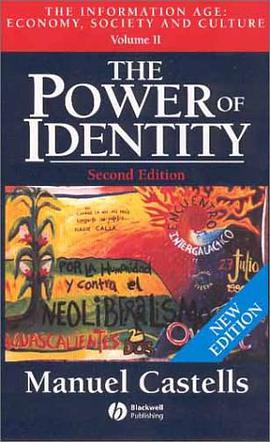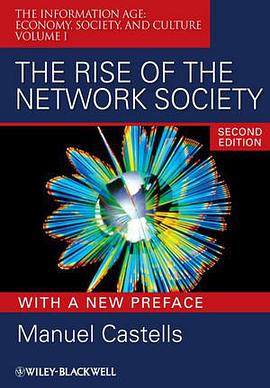社會學
Corporation Be Good! the Story of Corporate Social Responsibility 豆瓣
作者:
Frederick, William C.
Lightning Source Inc
Here is the story of Corporate Social Responsibility---what it means, where it came from, where it is going, what it requires of business. Told in an eyewitness, I-was-there style by a pioneer of the study of CSR in the nation's business schools, it takes the reader through a half century of corporate scandals and fierce struggles over corporate ethics---from Ralph Nader's 1960s Campaign GM to today's white collar crimes at Enron, WorldCom, Tyco, and other Wall Street giants. It lays bare the values that drive corporate culture, explores the motivational depths of corporate strategy and policy, demonstrates how biological impulses can lead business decision makers astray, questions the relevance and ethical commitment of business school education, reveals the spiritual side of management life, and holds out hope that the New Millennium will see improvement in the ethical performance of business. William C. Frederick is one of the founders of the study of Corporate Social Responsibility in the United States and initiated some of the key concepts and analytic categories. His books include Business and Society, Social Auditing, and Values, Nature, and Culture in the American Corporation. He was president of The Society for Business Ethics and The Society for Advancement of Socio-Economics, and chaired the Social Issues in Management division of The Academy of Management. He conducted studies of management education in Spain, Italy, Egypt, Yugoslavia, Ecuador, Nigeria, and Australia, and designed and taught programs for executives in U. S. corporations. He was dean of the business schools at the University of Kansas City and the University of Pittsburgh. He received a PhD in economics andanthropology from the University of Texas. Corporation, Be Good draws on the author's half-century of thinking about the social and ethical responsibilities of the modern corporation.
Corporate Social Responsibility 豆瓣
作者:
Philip Kotler
/
Nancy Lee
John Wiley & Sons
2004
Today, corporations are expected to give something back to their communities in the form of charitable projects. In Corporate Social Responsibility, Philip Kotler, one of the world's foremost voices on business and marketing, and coauthor Nancy Lee explain why charity is both good P.R. and good for business. They show business leaders how to choose social causes, design charity initiatives, gain employee support, and evaluate their efforts. They also provide all the best practices and cutting-edge ideas that leaders need to maximize their contributions to social causes and do the most good. With personal stories from twenty-five business leaders from socially responsible companies, this is the bible for today's good corporate citizen.
The Age of Responsibility 豆瓣
作者:
Wayne Visser
Wiley
2011
- 3
Praise for the book “Wayne Visser's The Age of Responsibility elegantly and persuasively demonstrates the limits and failures of traditional CSRand alsothekinds of reforms needed to create conditions for genuine corporate responsibility. Rich with insight, information and analyses, and highly readable for its excellent writing and poignant stories, the book is a crucial contribution to understanding where we are with CSR and what we need to do to move forward.” Joel Bakan , author of The Corporation: The Pathological Pursuit of Profit and Power (book and documentary film) Amongst the advocates of CSR as an innovative management approach, Wayne Visser is a well-known voice. This new book states more clearly than most why CSR should not be dismissed, but would benefit from some serious rethinking.” Michael Blowfied , Senior Research Fellow at Smith School of Enterprise and the Environment, Oxford University and author of Corporate Responsibility The Age of Responsibility by Wayne Visser is an important book that should be studied carefully by all those seriously interested in the past, present and future of CSR. For me, the most noteworthy contribution is his “ages and stages” of CSR. Visser identifies five overlapping economic periods and classifies their stages of CSR, modus operandi, key enablers, and stakeholder targets. In forward-looking fashion, he crafts five insightful principles of CSR 2.0 and presents his DNA Model of CSR 2.0 which integrates knowledge and sets forth a more inclusive view of CSR. This book is a significant contribution to the theory and practice of CSR and it will be valued by academics and practitioners alike. I strongly recommend it.” Archie B. Carroll , Professor of Management Emeritus, Terry College of Business and author of Business and Society ;A challengingandthought provoking book. In an age whencorporate responsibilityisamust for most large businesses, Wayne Visser reminds us that global environmental and social pressures show little signof receding. He asks: are we as practitioners complacent, or worse, part of the problem?There ishope and optimism but only if we are brave and bold enough to re-engineer corporate responsibility. Read on...” Yogesh Chauhan , Chairman Corporate Responsibility Group and BBC Chief Adviser Corporate Responsibility. An authoritative tome on the CSR movement. It provides a comprehensive framework to understand the various stages of (and motivations for) CSR in organizations and the economy to date, and a clear vision of what a truly sustainable and responsible tomorrow entails. This is an eminently well-researched and well-structured book that flows coherently with deep insights and valuable vignettes.” Willie Cheng , author ofDoing Good Well: What does (and does not) make sense in the nonprofit world . The Age of Responsibility provides a much-needed wake up call for the corporate responsibility movement. This highly readable account of where CSR has gone wrong and where it needs to go next is essential reading for anyone interested in the role business can play in creating a just and sustainable society. This is the best CSR book you'll read all year.” Andrew Crane , George R. Gardiner Professor of Business Ethics, Schulich School of Business, York University and author of Business Ethics The Age of Responsibility breathes new life into CSR, both by redefining it as Corporate Sustainability and Responsibility and by highlighting why CSR has so far failed to make much difference in the way companies respond to pressing global challenges. In his inimitable style, using clear frameworks and illustrative case studies, Wayne Visser brings real insight to a complex set of ideas at a time when they are needed most. Bring on CSR 2.0!” Polly Courtice , Director of the University of Cambridge Programme for Sustainability Leadership In this time of seemingly widespread corporate malfeasance Wayne Visser has put his finger on why CSR has failed to deliver on its promise and what can be done to right the ship. The Age of Responsibility is a must read for anyone concerned about the future of business.” CSR 1.0 did remarkably well through the latest Great Recession, despite having precariously little to say on the big issues of the day and no ready-to-go blueprint for economic transformation. As a result, we are seeing a massive reboot going in the CSR industry – and Wayne Visser is a consistently reliable guide to (and champion of) the emerging CSR 2.0 mindsets and practices.” John Elkington , Co-Founder and Director, Volans Ventures and co-author of The Power of Unreasonable People It is difficult to run a sustainable business in an unsustainable world. So forget about the defensive, charitable, promotional and strategic versions of CSR. The Age of Responsibility is a call for companies to shift to CSR 2.0 – where success is judged by improvements in the overall socio-cultural, economic and ecological systems. If not, CSR will continue to fail, argues Wayne Visser. With an array of cases Visser guides you through the evolution of business responsibility – from the Ages of Greed, Philanthropy, Misdirection and Management to the Age of Responsibility – and shares the five principles of sustainable business actions. Wayne Visser’s insightful book is at the same time a compelling personal story about the existential questioning of whether or how it is possible to make a difference through CSR.” Tania Ellis , international speaker, business advisor and author of The New Pioneers Through a concise analysis of recent economic history and through the wisdom of parables, Visser’s book offers an illuminating analysis of the heart of greed—and of the path our institutions can take to move from corporate responsibility as a form of occasional philanthropy to an ethic of responsibility that is radically transformative. Visser’s new economic myth or meta-narrative creates a compelling vision of a possible sustainable world.” Betty Sue Flowers , Professor Emerita, University of Texas at Austin and co-author of Presence: An Exploration of Profound Change in People, Organizations, and Society Wayne Visser has rightly identified resp...
Die gesellschaftliche Konstruktion der Wirklichkeit 豆瓣
作者:
Peter Berger
/
Thomas Luckmann
Fischer Taschenbuch Verlag
2012
- 1
儿童的世纪 豆瓣 Goodreads
L'enfant et la vie familiale sous l'Ancien Régime
7.7 (6 个评分)
作者:
菲力浦·阿利埃斯
译者:
沈坚
/
朱晓罕
北京大学出版社
2013
- 4
本书荣获2013年傅雷翻译出版奖(社科类)。
在中世纪,小孩几乎一断奶,就被当作“小大人”看待,他们混入成人中间,穿着与大人相仿的衣服,与其一起劳动、竞争、社交、玩耍。从中世纪末期以来,父母逐渐开始鼓励小孩与成人分离,以儿童及对儿童的保护和教育为中心的新的家庭观发展起来了。将童年时期视为一个最特殊的人生阶段,这个观 念自此扎根于现代西方思想之中,并席卷了整个现代世界,成为无可动摇的价值观。
阿利埃斯通过考察四个世纪的绘画和日记,以及游戏、礼仪、学校及其课程的演变来追溯儿童的历史。自1962年初版以来,本书在西方史学界引起了极大反响,被视为儿童史和家庭史的奠基之作。
在中世纪,小孩几乎一断奶,就被当作“小大人”看待,他们混入成人中间,穿着与大人相仿的衣服,与其一起劳动、竞争、社交、玩耍。从中世纪末期以来,父母逐渐开始鼓励小孩与成人分离,以儿童及对儿童的保护和教育为中心的新的家庭观发展起来了。将童年时期视为一个最特殊的人生阶段,这个观 念自此扎根于现代西方思想之中,并席卷了整个现代世界,成为无可动摇的价值观。
阿利埃斯通过考察四个世纪的绘画和日记,以及游戏、礼仪、学校及其课程的演变来追溯儿童的历史。自1962年初版以来,本书在西方史学界引起了极大反响,被视为儿童史和家庭史的奠基之作。
Le deuxième sexe, tome 1 豆瓣
作者:
Simone de Beauvoir
Gallimard
1986
- 4
Sind wir noch zu retten? Warum Staat, Markt und Gesellschaft auf einen Systemkollaps zusteuern 豆瓣
作者:
Klaus Schweinsberg
FinanzBuch Verlag
2010
- 11
The Shock Doctrine 豆瓣 Goodreads
作者:
Naomi Klein
Metropolitan Books
2007
- 9
The bestselling author of No Logo shows how the global free market has exploited crises and shock for three decades, from Chile to Iraq
In her groundbreaking reporting over the past few years, Naomi Klein introduced the term disaster capitalism. Whether covering Baghdad after the U.S. occupation, Sri Lanka in the wake of the tsunami, or New Orleans post-Katrina, she witnessed something remarkably similar. People still reeling from catastrophe were being hit again, this time with economic shock treatment, losing their land and homes to rapid-fire corporate makeovers.
The Shock Doctrine retells the story of the most dominant ideology of our time, Milton Friedman s free market economic revolution. In contrast to the popular myth of this movement s peaceful global victory, Klein shows how it has exploited moments of shock and extreme violence in order to implement its economic policies in so many parts of the world from Latin America and Eastern Europe to South Africa, Russia, and Iraq.
At the core of disaster capitalism is the use of cataclysmic events to advance radical privatization combined with the privatization of the disaster response itself. Klein argues that by capitalizing on crises, created by nature or war, the disaster capitalism complex now exists as a booming new economy, and is the violent culmination of a radical economic project that has been incubating for fifty years.
From Publishers Weekly
The neo-liberal economic policies—privatization, free trade, slashed social spending—that the Chicago School and the economist Milton Friedman have foisted on the world are catastrophic in two senses, argues this vigorous polemic. Because their results are disastrous—depressions, mass poverty, private corporations looting public wealth, by the author's accounting—their means must be cataclysmic, dependent on political upheavals and natural disasters as coercive pretexts for free-market reforms the public would normally reject. Journalist Klein (No Logo) chronicles decades of such disasters, including the Chicago School makeovers launched by South American coups; the corrupt sale of Russia's state economy to oligarchs following the collapse of the Soviet Union; the privatization of New Orleans's public schools after Katrina; and the seizure of wrecked fishing villages by resort developers after the Asian tsunami. Klein's economic and political analyses are not always meticulous. Likening free-market shock therapies to electroshock torture, she conflates every misdeed of right-wing dictatorships with their economic programs and paints a too simplistic picture of the Iraq conflict as a struggle over American-imposed neo-liberalism. Still, much of her critique hits home, as she demonstrates how free-market ideologues welcome, and provoke, the collapse of other people's economies. The result is a powerful populist indictment of economic orthodoxy.
In her groundbreaking reporting over the past few years, Naomi Klein introduced the term disaster capitalism. Whether covering Baghdad after the U.S. occupation, Sri Lanka in the wake of the tsunami, or New Orleans post-Katrina, she witnessed something remarkably similar. People still reeling from catastrophe were being hit again, this time with economic shock treatment, losing their land and homes to rapid-fire corporate makeovers.
The Shock Doctrine retells the story of the most dominant ideology of our time, Milton Friedman s free market economic revolution. In contrast to the popular myth of this movement s peaceful global victory, Klein shows how it has exploited moments of shock and extreme violence in order to implement its economic policies in so many parts of the world from Latin America and Eastern Europe to South Africa, Russia, and Iraq.
At the core of disaster capitalism is the use of cataclysmic events to advance radical privatization combined with the privatization of the disaster response itself. Klein argues that by capitalizing on crises, created by nature or war, the disaster capitalism complex now exists as a booming new economy, and is the violent culmination of a radical economic project that has been incubating for fifty years.
From Publishers Weekly
The neo-liberal economic policies—privatization, free trade, slashed social spending—that the Chicago School and the economist Milton Friedman have foisted on the world are catastrophic in two senses, argues this vigorous polemic. Because their results are disastrous—depressions, mass poverty, private corporations looting public wealth, by the author's accounting—their means must be cataclysmic, dependent on political upheavals and natural disasters as coercive pretexts for free-market reforms the public would normally reject. Journalist Klein (No Logo) chronicles decades of such disasters, including the Chicago School makeovers launched by South American coups; the corrupt sale of Russia's state economy to oligarchs following the collapse of the Soviet Union; the privatization of New Orleans's public schools after Katrina; and the seizure of wrecked fishing villages by resort developers after the Asian tsunami. Klein's economic and political analyses are not always meticulous. Likening free-market shock therapies to electroshock torture, she conflates every misdeed of right-wing dictatorships with their economic programs and paints a too simplistic picture of the Iraq conflict as a struggle over American-imposed neo-liberalism. Still, much of her critique hits home, as she demonstrates how free-market ideologues welcome, and provoke, the collapse of other people's economies. The result is a powerful populist indictment of economic orthodoxy.
Technological Empowerment 豆瓣
作者:
Yongnian Zheng
Stanford University Press
2007
- 11
Will new information technologies, especially the Internet, bring freedom and democracy to authoritarian China? This study argues that the Internet has brought about new dynamics of socio-political changes in China, and that state power and social forces are transforming in Internet-mediated public space. Its findings are fourfold. First, the Internet empowers both the state and society. The Internet has played an important role in facilitating political liberalization, and made government more open, transparent, and accountable. Second, the Internet produces enormous effects which are highly decentralized and beyond the reach of state power. Third, the Internet has created a new infrastructure for the state and society in their engagement with (and disengagement from) each other. Fourth, the Internet produces a recursive relationship between state and society. The interactions between the state and society over the Internet end up reshaping both the state and society.
The Social Construction of Reality 豆瓣
作者:
Peter L. Berger
/
Thomas Luckmann
Anchor
1967
- 7
This book reformulates the sociologicalsubdiscipline known as the sociology of knowledge.Knowledge is presented as more than ideology, including aswell false consciousness, propaganda, science andart.
Creativity and Personal Freedom 豆瓣
作者:
Frank Barron
Van Nostrand Reinhold Inc.,U.S.
1968
- 5
中国化的日本 豆瓣
中国化する日本
作者:
[日] 與那霸润
译者:
何晓毅
广西师范大学出版社
2013
- 4
“日本化”曾是代表日本制造业水平高超的标志性词汇,是指美欧陷于疲态的制造业竞相采用日本式品质管理方法来生产经营。令人遗憾的是,如今日本已进入老龄化社会,经济长期停滞,“日本化”的意义已改变,完全成了消极意义的词汇。而“中国化”一词近来广为人们热议。
10世纪宋朝时期,中国社会结构发生巨变。当时中国早已设立相当于高级公务员考试的科举制度,不能世袭权势地位的国民可通过自己的实力来获得地位和权力。市场经济渗透整个社会,人们不再受到土地和职业限制,官员也被派往外地。尽管皇帝独揽大权,经济活动却是自由的。从这点看,这种体制确实与如今中国的统治体系很相似。
日本从隋唐起效仿中国统治体系。到了宋代,日本开始采用与此对立的贵族世袭制度,由“中国化”变成“江户时代化”———按家族世袭来固定身份,居住地也受到限制。明治维新时期,日本虽一度采用“中国化”,但最终回到“江户时代化”体制。
当今,世界已开始“中国化”,既得利益群体将被触动,最终国家统治也不再依赖坚守自身利益的地方团体。如今,大阪市市长桥下彻提出建议,要推翻日本“江户时代化”的僵化体系,推行“中国化”体制。这是否意味着日本将放弃目前消极的“日本化”而走“中国化”道路呢?
10世纪宋朝时期,中国社会结构发生巨变。当时中国早已设立相当于高级公务员考试的科举制度,不能世袭权势地位的国民可通过自己的实力来获得地位和权力。市场经济渗透整个社会,人们不再受到土地和职业限制,官员也被派往外地。尽管皇帝独揽大权,经济活动却是自由的。从这点看,这种体制确实与如今中国的统治体系很相似。
日本从隋唐起效仿中国统治体系。到了宋代,日本开始采用与此对立的贵族世袭制度,由“中国化”变成“江户时代化”———按家族世袭来固定身份,居住地也受到限制。明治维新时期,日本虽一度采用“中国化”,但最终回到“江户时代化”体制。
当今,世界已开始“中国化”,既得利益群体将被触动,最终国家统治也不再依赖坚守自身利益的地方团体。如今,大阪市市长桥下彻提出建议,要推翻日本“江户时代化”的僵化体系,推行“中国化”体制。这是否意味着日本将放弃目前消极的“日本化”而走“中国化”道路呢?
Lost Dimension 豆瓣
作者:
Paul Virilio
译者:
Moshenberg, Daniel
Semiotext(e)
1991
- 1
To read these five essays of 1983 is to begin to come to terms with the theoretical cataclysm of the present. In Lost Dimension, Paul Virilio considers the displacement of the concept of dimensional space by Einsteinian space/time as it is related to the transparent boundaries of the postmodern city and contemporary economy. Virilio imagines a coming world of interactive, informational networks offering a prison-house of illusionary transcendence. He pictures global terrorism (perpetrated by and against technological states) filling up the surreal void of an abandoned real. In a multidisciplinary excavation of contemporary physics, architecture, esthetic theory, and sociology, Virilio traces the dystopic unity of the contemporary Western predicament with lightning prescience and clarity.
Geschwindigkeit und Politik 豆瓣
作者:
Paul Virilio
Merve
2008
- 1
The Power of Identity 豆瓣
作者:
Manuel Castells
Wiley-Blackwell
2003
- 8
In this second volume of The Information Age trilogy, with an extensive new preface following the recent global economic crisis, Manuel Castells deals with the social, political, and cultural dynamics associated with the technological transformation of our societies and with the globalization of the economy.
Extensive new preface examines how dramatic recent events have transformed the socio-political landscape of our world
Applies Castells’ hypotheses to contemporary issues such as Al Qaeda and global terrorist networks, American unilateralism and the crisis of political legitimacy throughout the world
A brilliant account of social, cultural, and political conflict and struggle all over the world
Analyzes the importance of cultural, religious, and national identity as sources of meaning for people, and its implications for social movement
Throws new light on the dynamics of global and local change
Extensive new preface examines how dramatic recent events have transformed the socio-political landscape of our world
Applies Castells’ hypotheses to contemporary issues such as Al Qaeda and global terrorist networks, American unilateralism and the crisis of political legitimacy throughout the world
A brilliant account of social, cultural, and political conflict and struggle all over the world
Analyzes the importance of cultural, religious, and national identity as sources of meaning for people, and its implications for social movement
Throws new light on the dynamics of global and local change
The Rise of the Network Society 豆瓣
作者:
Manuel Castells
Wiley-Blackwell
2009
- 8
This first book in Castells' groundbreaking trilogy, with a substantial new preface, highlights the economic and social dynamics of the information age and shows how the network society has now fully risen on a global scale. Groundbreaking volume on the impact of the age of information on all aspects of society Includes coverage of the influence of the internet and the net-economy Describes the accelerating pace of innovation and social transformation Based on research in the USA, Asia, Latin America, and Europe
Parkinson's Law 豆瓣
作者:
C. Northcote Parkinson
Buccaneer Books
1996
